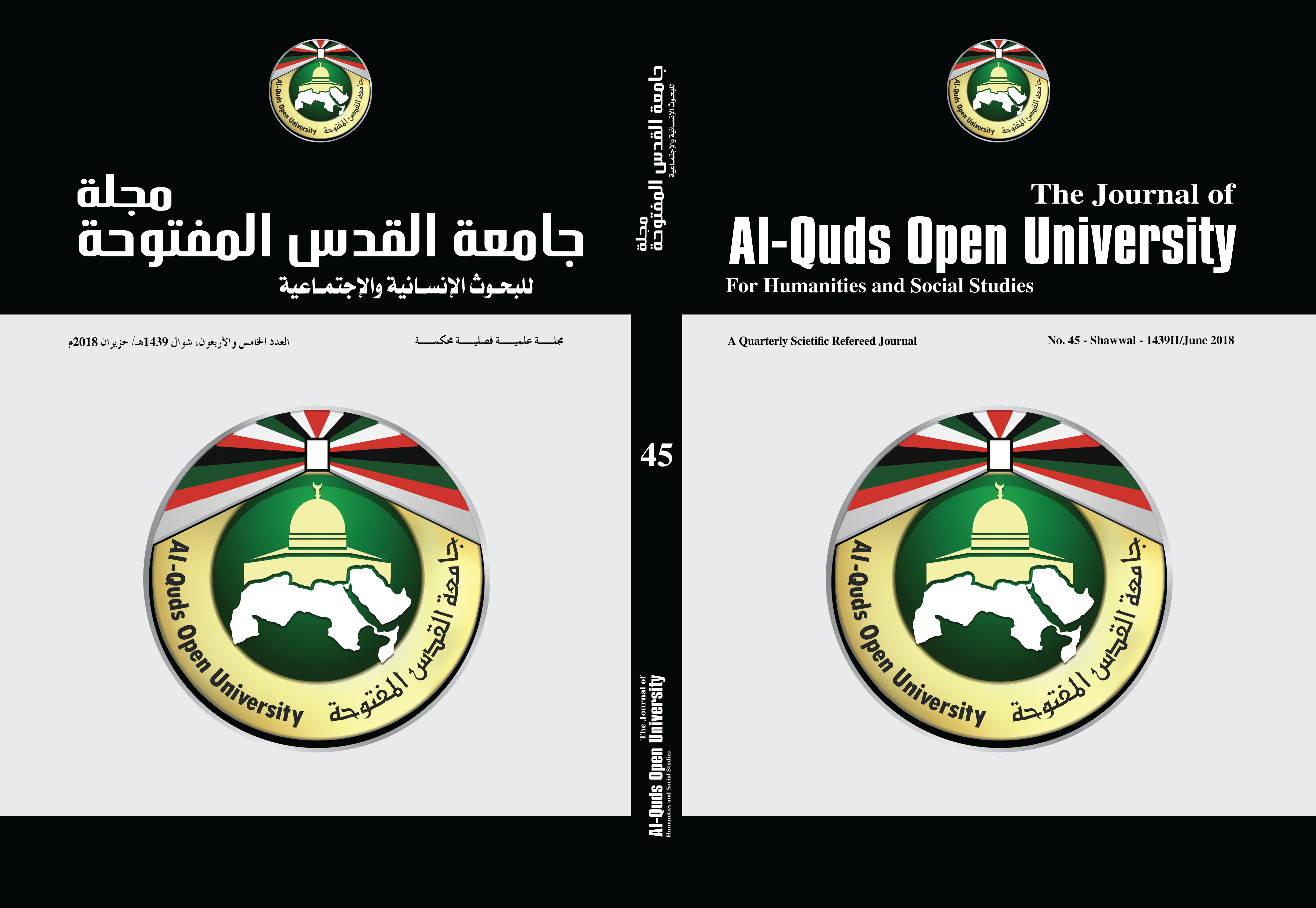Delinquent Juveniles and Informal Judiciary (Hebron Governorate as a Model)
Keywords:
Delinquent Juvenile, informal judiciary, children rights, juvenile Judiciary, juvenile justice, juvenile justice law, criminal procedures law, tribal Judiciary.Abstract
This study deals with the situation of children in the non- formal justice system in Hebron governorate in the West Bank. It is part of a series of studies aimed at addressing the information gap on children in the informal justice system in the Middle East and North Africa region.
The study briefly reviews the main issues and discussions concerning the informal justice system in general and children in the informal justice system, in particular, in Hebron City. An analysis of the results of the study is presented in light of the international standards of children's rights, followed by recommendations that address the relevant authorities working in the formal and informal justice systems.
Numerous studies have been conducted regarding the official judiciary for juveniles in Palestine; however, these studies have neglected the status of juvenile justice within the informal justice system. This adds a special importance to our study that aims to examine the situation of the juvenile justice within the context of the informal judiciary in Hebron Governorate, one of the largest cities of the West Bank governorates, and to know to what extent this system takes into account the best interests for children.
The official juvenile justice system throughout the West Bank is in fact a mixture of laws extending from the Ottoman era and the British mandate to the Jordanian law system ending with the Palestinian National Authority. The main legal provisions for juvenile justice in the West Bank are the Juveniles Law No. 4 of 2016 and the Palestinian Children's Act of 2004. In this context, this study presents an analysis of the strengths and the weaknesses of the laws and its implementation methods, highlighting the points of convergence and differences in comparison with the relevant international directives.
The informal justice system plays a crucial role in resolving disputes between individuals and clans in the Hebron governorate. This permanently involves children who find themselves face to face with the informal justice system as offenders, victims or witnesses. The study provides a detailed description of the realities of children in the context of informal judicial proceedings and highlights the differences based on the categories of workers in the informal justice system. Since maintaining security, peace and social harmony are the main objectives of the informal justice system, the truce is a recurrent mechanism to facilitate the reconciliation and prevent revenge. The penalties imposed by the informal justice procedures that range from financial sanctions to deportation. Different forms of collective punishment are carried out, which often endanger the best interests of the child. This is in addition to the tendency to treat victims as criminals besides the serious lack of rehabilitation support, which is of great concern to the methods used by the informal justice system, which rarely take into account the rights of the child. On the other hand, there are also other evidences that show the procedures applied by the informal justice system and how they offer a quick and a cheap alternative to the flawed formal justice system.
The study also analyzes the main features of the informal justice system in Hebron through two points of views about child protection and the status of juveniles and the extent to which it meets the international standards. In addition, the study compares the current characteristics of the system with the principle of the rule of law in accordance with the Palestinian legislations. The study concludes with its recommendations for both the informal and formal judicial systems, recognizing the need to give a greater attention to both systems within a comprehensive strategy for reforming the justice sector.
Downloads
Published
How to Cite
Issue
Section
License
- The editorial board confirms its commitment to the intellectual property rights
- Researchers also have to commit to the intellectual property rights.
- The research copyrights and publication are owned by the Journal once the researcher is notified about the approval of the paper. The scientific materials published or approved for publishing in the Journal should not be republished unless a written acknowledgment is obtained by the Deanship of Scientific Research.
- Research papers should not be published or republished unless a written acknowledgement is obtained from the Deanship of Scientific Research.
- The researcher has the right to accredit the research to himself, and to place his name on all the copies, editions and volumes published.
- The author has the right to request the accreditation of the published papers to himself.













_2.png)
_.png)
_2.png)
_1.png)
_.png)

